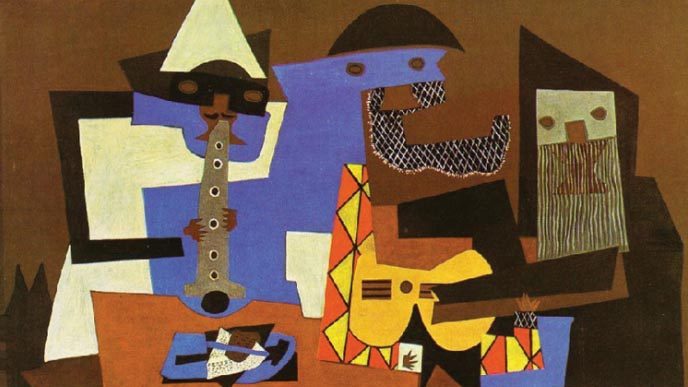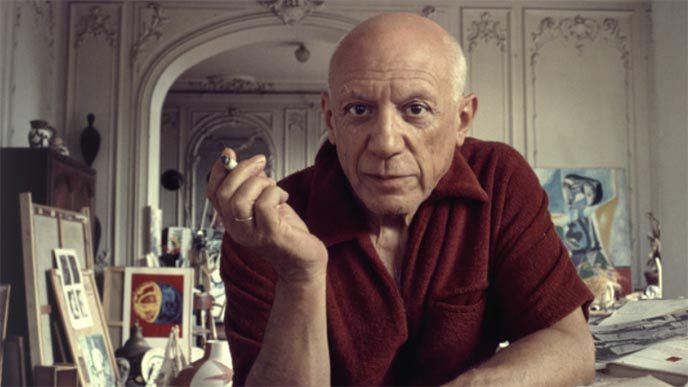There are certain cliches that we’ve come to internalize as a modern society, whether or not they are actually true in all or even most cases. We just assume automatically that every used car salesperson is sneaky and deceptive, straight up lying to your face in order to close the deal. There is the archetype of the starving student, accumulating massive student debt as they eat instant noodles for lunch and binge drink on the weekends. Most of these are unfair, of course, but we’ve come to internalize them.
And for the most part, we’ve come to assume that artists are generally crazy, broke, or more likely than not, both crazy and broke. While we may romanticize the idea of the artist sacrificing for his or her craft, we also assume that most artists are practically destitute, sharing one-bedroom apartments with four other “hippies” or “hipsters.” But a few break through and actually achieve impressive success within their lifetimes.
Three Musicians
Pablo Picasso is one such individual. Even if you know almost nothing about the art world (like me), you’ve surely heard of his name. You know that he was (is!) incredibly famous and he was (is!) very influential in the art world. You probably know him best from his cubism period with distorted images of reality.

What you see here is an oil and collage painting called Three Musicians. This is the version that is a part of the permanent collection at New York City’s Museum of Modern Art (MoMA). There is another version of this painting that looks a little different but has a similar kind of colorful concept; it is on display at the Philadelphia Museum of Art.
It goes without saying that Pablo Picasso was and continues to be a very big deal. But it’s not like he was an overnight success either.
Diner Doodles
I’m currently listening to the audiobook version of The Subtle Art of Not Giving a F*ck by Mark Manson. In it, he recounts a particular story about Pablo Picasso that may or may not be one hundred percent accurate, but it still illustrates a very important point that all of us should take to heart. And yes, this comes well before the Internet became a thing, let alone Internet marketing as a viable business.
So, the tale goes a little something like this. Pablo Picasso is in his later years, having already achieved great fame and fortune from his art. He’s leading a much quieter life, but his creativity continues to yearn for representation and application. And so, he finds himself in some small cafe, sipping away on a coffee or whatever, and he allows his mind to wander as he doodles on a paper napkin.
As he prepares to leave and just before he tosses his napkin into the trash, he’s approached by a woman in the cafe. She expresses her great admiration for his work and asks if it’s okay if she have the napkin with the doodle on it. She says she’d even be willing to pay for it.

Time, Value and Experience
Picasso turns to the woman and tells her that the price for the napkin doodle is $20,000. Remember that this encounter would have taken place about half a century ago. Adjusted for inflation, the asking price would be somewhere around $500,000 in today’s dollars.
Aghast at the asking price, the woman declares that he was just about to throw the napkin into the trash anyhow and it only took him a couple minutes to draw. To this, Picasso replies (and I’m paraphrasing), “No, you’re wrong. It didn’t take me two minutes. It took me over 60 years to draw.”
When we see the final work of a professional, whether that’s a painting, a song, a book or anything else, we only perceive the actual final product. What we don’t see are the years of blood, sweat and tears that it took to get to that point. We don’t see all the failed manuscripts and drafts that no one cared to give a second look. We don’t see all the learning through experience that it took to get to that point.
Know your value. And know that it takes time for you to get to the point where you can, with confidence, ask for half a million dollars for your napkin doodle. The story goes that Picasso then delicately folded up the napkin, put it in his pocket, and walked out of the cafe.
